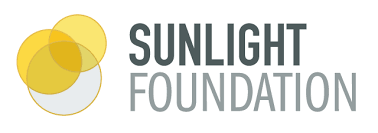A couple weeks ago we had a party to celebrate our shared work with FreeGeek Chicago on the Crime and Punishment in Chicago project. During the event, we heard from the people on the project team and got feedback on how the project can become even more helpful for community members, journalists, and policymakers.
I’m particularly proud of this project, because it takes a hard look at the gaping data holes we have in seeing the full cycle of crime in our city. I am very proud of the large cache of crime reports available on the City data portal, but I am mindful that we seem to be no closer in having a true understanding of the system.
In my work at EveryBlock, I was responsible for finding crime data in cities all over the country. It gave me a great window into the day-to-day reality of the data and the differences in what’s published. When we had the opportunity to partner with Tracy Siska of the Chicago Justice Project as the main subject matter expert, and the community-based developers like Brian Peterson of the FreeGeek Chicago’s Supreme Chi-Town Coding Crew, I knew we had something special.

The Crime and Punishment in Chicago project provides an index of data sources regarding the criminal justice system in Chicago. We aggregate sources of data, how this data is generated, how to get it, and what data is unavailable. This project is a key way we are using the Civic Works grant to use data journalism to uncover the value of data and cover the stories behind the data. Here’s David Eads describing the project:
This project is part of the Smart Chicago Collaborative’s Civic Works Project, a program funded by the Knight Foundation and the Chicago Community Trust to spur support civic innovation in Chicago. Christopher Whitaker is our project manager on this work. Here he is describing the Civic Works Project:
We partnered with the Chicago Justice Project to help us better understand what data is available across the criminal justice system. The Crime and Punishment in Chicago site goes into great detail at every step to show what data is publicly available and what’s not. Here’s Tracy Siska giving us an overview of the site:
The site was built by FreeGeek Chicago’s Supreme Chi-Town Coding Crew. Lead developer Brian Peterson walked us through how they used the Tarbell platform to build the site.
You can see the full site at http://crime-punishment.smartchicagoapps.org/





